Making the most of voice talent
Voice actors talk about the challenges of working in games and share tips for getting the best possible performances out of them
"When I went into the God of War audition, I had no idea what it was. They were very clandestine with their information. I just knew it was an interactive situation with Sony. They were calling it Internal 8."
That's Danielle Bisutti, describing for GamesIndustry.biz how she came to play the part of Freya in this year's critical and commercial smash God of War.
"When I got the sides, it read a little bit like Game of Thrones, so for all I knew I was going in to be the next Khaleesi Mother of Dragons. It ended up turning into God of War at some point."
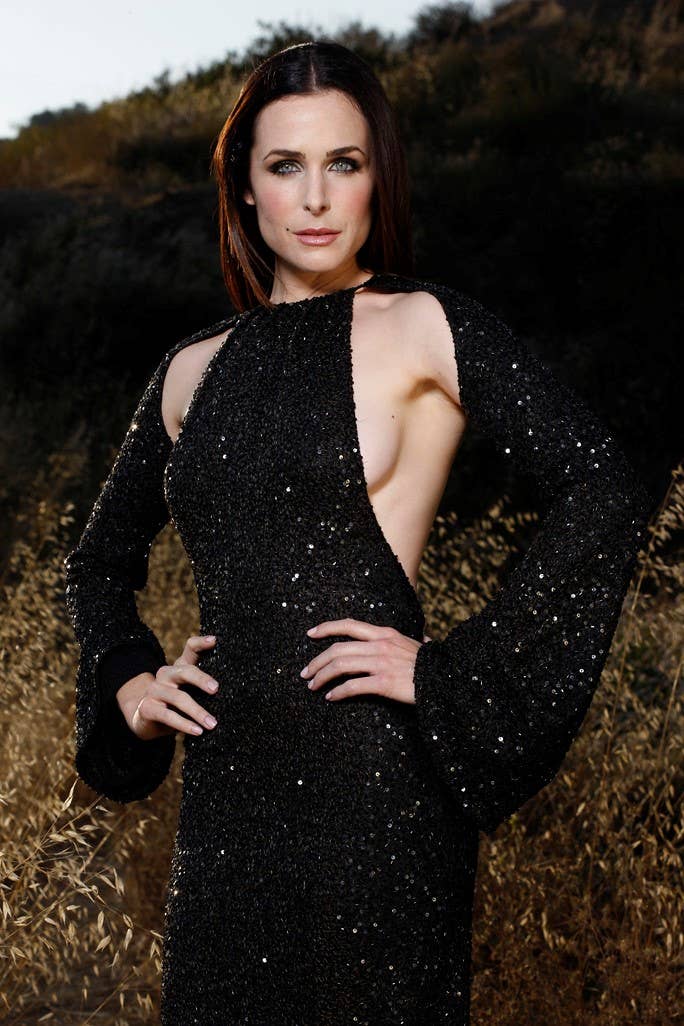
Bisutti landed the role, but she didn't learn what the project was or who she was working with until she came in to do a table read with the rest of the game's cast. It was an unusual sequence of events for Bisutti, who said normally she would fully know what project she was doing considerably before that.
It didn't help that Bisutti was already a little out of her comfort zone. Despite a successful career as an actress--she's had recurring roles on hit series like The O.C., Parks and Recreation, and CSI: Miami, and appeared in movies like Curse of Chucky and the Insidious horror franchise--Bisutti had never worked on a video game before. She'd never done performance capture, and she was still very new to voice acting at that point.
Add in that she was only then discovering who she would be acting alongside (an accomplished cast including Christopher Judge, Alastair Duncan, Robert Craighead, and Adam Harrington), and that the material was taking a much deeper dive into Norse mythology than she was familiar with, and Bisutti confessed to feeling particularly intimidated.
"I'm a student of the theater. I'm a total thespian," she explained. "I really wish I'd done a little more research prior to the table read because when I was done with that, I was like, 'They're going to fire me. I don't know what's going on.'"
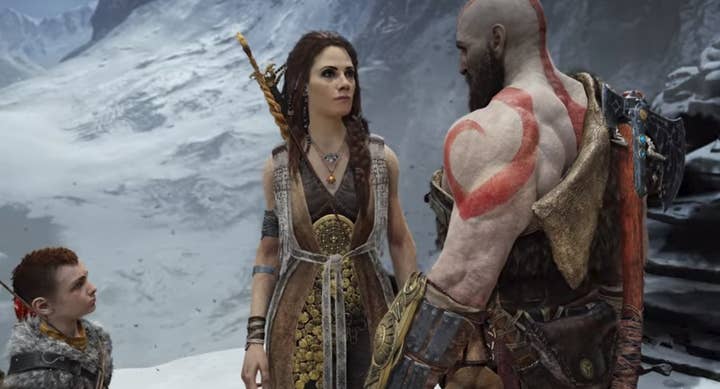
Gaming's Black Box
In some ways, Bisutti's experience is typical for video game voice actors. Cissy Jones has been doing voice work for games since about 2010, when she took a job as Katjaa for Telltale Games' The Walking Dead. She's since appeared in dozens of projects of all scales, from playing the central role of Delilah in indie hit Firewatch to providing a variety of smaller roles for blockbusters like Grand Theft Auto V and Horizon: Zero Dawn.
"You usually show up on the day. You get a 10-minute briefing with the director and maybe a dev, and then you go"
Cissy Jones on when she typically gets a script
One might expect that over that variety of experiences and tenure, Jones would see some advancement when it comes to transparency with actors, but she said working in video games is "still a bit of a black box." Bisutti may not have found out she was on God of War until the table read, but one time Jones didn't discover what game she had worked on until after it was out.
"People were like, 'Hey are you in Fallout 4,' and I was like, 'Nah, man,'" she explained. "Then someone sent me a YouTube clip and I'm like, 'Holy shit, that's me!'"
Given that lack of communication, it's not surprising Jones often doesn't know what she's auditioning for.
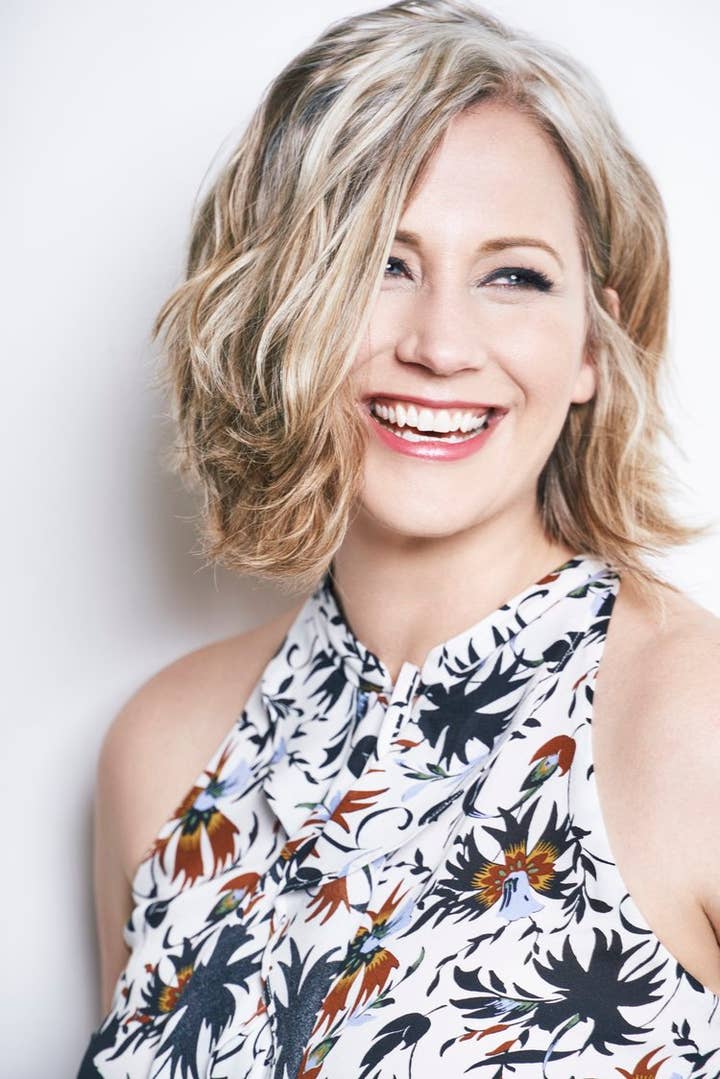
"They might tell you 'This is old England' or 'We want a British accent,' but not enough details to really piece it together, especially if it's a AAA title, especially especially if it's a sequel or part of a franchise," she said. "Because they don't want details to leak out about what their next thing is going to be... It's still shrouded in secrecy, a lot of which is for very good reason and a lot of which makes it challenging as an actor to really dig in and give the best performance possible."
Table reads like the one Bisutti had for God of War are likewise rare in Jones' experience. She's aware of one narrative-driven game that does them and believes it helps the writers immensely to tweak characters and scenes based on what's happening (or not happening) between the actors, but there are impediments. Logistically getting everyone together in the same space at the same time is often more difficult than one might expect, and table reads would require actors to receive scripts ahead of time, which is in itself a luxury for voice actors.
"It's usually on the clock," Jones said of when actors finally get the script they'll be performing. "You usually show up on the day. You get a 10-minute briefing with the director and maybe a dev, and then you go... Every now and then I'll get a script ahead of time, but typically not. Usually you show up, are given a brief rundown, and then you dive in and go line by line."
Why So Secretive?
That's certainly in keeping with the experience of Sarah Elmaleh. Elmaleh has been doing gaming voice work for the better part of this decade, and has high-profile credits in both indies (Gone Home, Where the Water Tastes Like Wine) and AAA (Final Fantasy XV, For Honor).
"It's almost always cold reading, which blows other actors' minds"
Sarah Elmaleh
"It's almost always cold reading, which blows other actors' minds," Elmaleh said. "'You don't get to rehearse? You're just looking at it now? You're reading it for the first time now, as you're trying to put it on tape?' Yeah, that's the skill. That's the weirdo skill we do."
She sees three main reasons for the way voice talent works in gaming. First, the industry's emphasis on secrecy and marketing reveals makes developers view actors as potential leaks. Second, the industry is not exactly known for getting everything done well in advance of deadlines, so scripts often aren't finalized with any time to get them to the actors beforehand. Finally, after so many years of things working this way, the talent has adapted to the specific requirements of game developers.
"A voiceover industry has built itself up around this need and this function so a lot of the best talent can shoot from the hip and it sounds like cut glass, it sounds amazing," Elmaleh said. "So at this point, that's something developers fully expect you to be able to do."
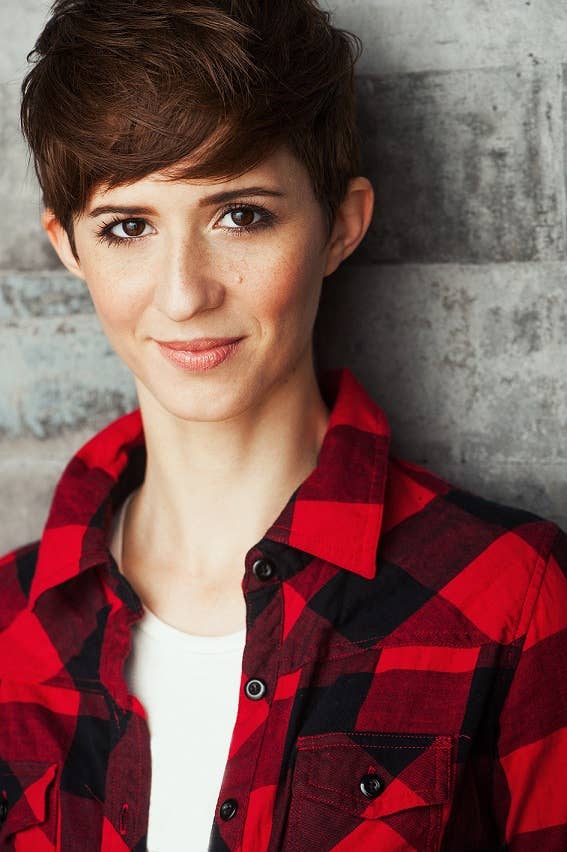
So what can developers do to get the most of the voice actors they bring on? Giving them more to prepare with seems an obvious answer, but having table reads and telling auditioning actors every detail about the game in question isn't going to happen anytime soon. However, Jones said a little bit more preparation can go a long way.
"Even if I can get the script, or a character description, or a world description the day before, I will read it," she said. "I will prepare it. I will make sure I know what's happening when I show up at the studio the next day. Having that understanding of where I am, who I am, who am I interacting with? That's going to give the best performance possible... Usually you show up, are given a brief rundown, and then you dive in and go line by line. If you're lucky, you have a great director who's prepared their script and who can really hold your hand and walk you through what's happening so you understand the situations and the stakes. We walk in so blind. It's really in the hands of the director to make sure they get what they need out of us, who really don't know what's happening."
The Need for Direction
When Jones talks about "the director", she's not necessarily referring to the game director. While developers sometimes choose to do double duty and manage recording sessions in addition to their other obligations, many hire a specialist like Keythe Farley to oversee a game's voice work. Farley has had a successful career as a voice actor--gamers may recognize his voice work as Thane Krios in the Mass Effect series and like Jones, appeared in Where the Water Tastes Like Wine and Fallout 4--but he's also established himself as a casting and voice director for games.
"Ideally, that's what a voice director is there for: to be that intermediary between the developers and writers"
Keythe Farley
His roots in voice direction go back to the late '90s and the Nickelodeon animated show Rugrats. When it received video game spin-offs, Farley managed the voice direction for some of them as well. From there he went on to handle voice direction for the original God of War trilogy and Final Fantasy XV, among others.
Whether he's in front of the microphone or behind it, Farley emphasizes what he calls "a servant mentality."
"We're there to serve the writers, and to serve the audience," Farley said. "So the idea of what a voice actor is doing is bringing the original material to the audience as clearly as possible, in partnership with a good director, who understands a) what the developers are looking to get, and b) how to talk to the actor and get that performance out. Then you've got a really smooth, clear working situation. Ideally, that's what a voice director is there for: to be that intermediary between the developers and writers with what they're looking to get out of the game, and the actor, who's trying to give the best performance possible."
For Farley, that link between the developer and the voice talent is key. And one of the most common mistakes developers make in his estimation is trying to get by without hiring a professional voice director.
"I understand budgetarily how difficult that can be, but it really does help with efficiency and getting what you want," Farley said. "That's a big one. Don't think you know how to talk to actors. When I first started doing Rugrats, the animated series, I had some experience as a director, but walking into that room with those seasoned professionals--E.G. Daily, Kath Soucie, and Tara Strong--it took me and them a while to get up to speed to where we could communicate easily and efficiently with each other. It's a tricky business, this voice directing thing, and I've been doing this for 20 years."
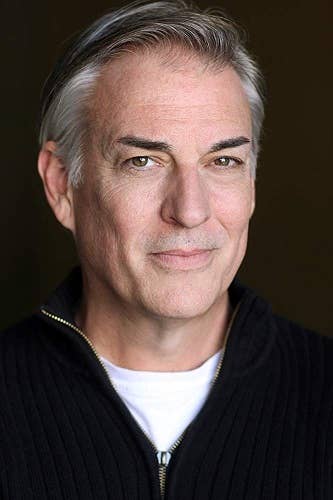
While Farley has found developers to be generally eager to accommodate actors' needs once they fully understand them, the combination of an inexperienced director and actors going along with anything lest they be seen as "difficult to work with" could produce some harmful outcomes.
"You wouldn't ask Usain Bolt to sprint for six miles," Farley said. "Don't ask an actor to scream at the top of their lungs for three or four hours straight. You're just inviting injury."
Lest you think a professional voice director like Farley is less than impartial when it comes to the value of professional voice directors, Elmaleh backs him up. She's recorded with developers on some projects and voice directors on others, and while the range of quality varies for both groups, she cautioned developers to think long and hard before going without a voice director.
"You might be a naturally gifted director, and that's fantastic," Elmaleh said. "But do you want to roll the dice on that, or are you prepared to admit when that's not the case?"
She added, "A big mistake is not understanding how direction works or respecting it as a particular craft. Not just in the act of giving direction, translating for actors what you want from them, but also managing a session emotionally for both of you. There are endless tiers of how nuanced and profound and deep that skill can go that I think a lot of people don't realize until they're in the booth. That can be sad when you have an indie developer who has spent so much time and effort and care developing writing they think is interesting and they've hired someone they think is fantastic, but then they run into a communication issue during the session because they hadn't quite accounted for what directing would mean and how they play a role."
Emaleh said a good director will be sensitive to her mood, hear her vocal strain before she does, communicate to her on behalf of the developer what the character needs to be, and serve as a buffer so she isn't getting multiple people giving her conflicting directions. But that's not to say she doesn't want to interact with the core development team.
"I like getting a chance to meet them, getting a chance to experience their enthusiasm and their vision," Emaleh said. "If there's a question about a line, if there's something we want to tweak because it sounds funny or we want to mess with it, I would want the developer there to embrace that or not. It's not that I don't want them there, but everyone plays their part in that scenario. I would like for everyone to be there, and for the director to mostly be a translator between us."
Creative Collaboration
Jones provides one easy example of how a game can benefit from having the voice talent and developers working closely. For Firewatch, she worked closely with Campo Santo Sean Vanaman and Jake Rodkin rather than an external voice director, and found having direct access to the game's creative team immensely helpful.
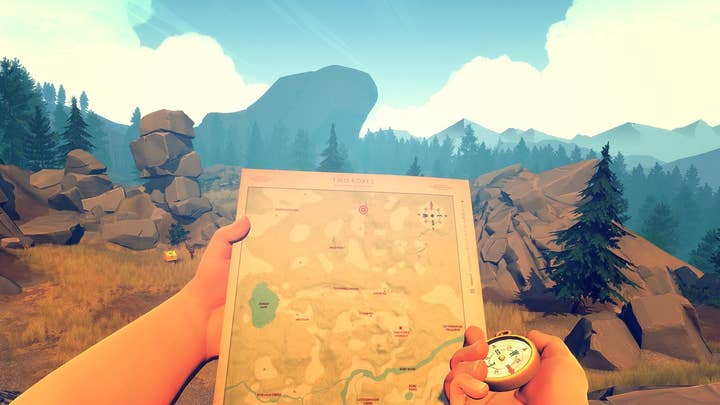
"We were learning as we went too, but what [Sean] did have was a rock-solid foundation of who Delilah was and who Henry was," Jones said. "He knew those characters. He knew at their core what kind of people they were and the past situations that had brought them to where they were now. He knew that about Ned, about Bryan Goodwin, about the two teens at the lake. Sean can create a character so solid that I don't have to know what's coming up. I know how this woman will respond in the moment."
It also helped that Campo Santo recorded the lines for Jones and Rich Sommer (who voiced the game's player character, Henry) together, allowing for chemistry between the characters.
"We got to see what jokes were landing on the fly, which is so, so great in a game that is conversationally driven," Jones said. "Because if the conversations don't work, the game doesn't work."
Bisutti's experience for God of War was significantly different. Like Jones with Firewatch, she recorded her scenes together with the other cast members, and the table read had given the actors at least some chance to prepare and develop chemistry before recording. However, her role as Freya was performance captured, which introduced its own constraints, figuratively and literally.
She described the performance capture process as similar to doing theater in the round, but with a slew of cameras instead of an audience, sparse props (the head of Mimir was essentially a basketball hanging from a rope) and "an arsenal" of tech on a performance capture jumpsuit with Velcro markers, a weighted helmet with another camera pointed right in her face, and a battery pack on her waist.
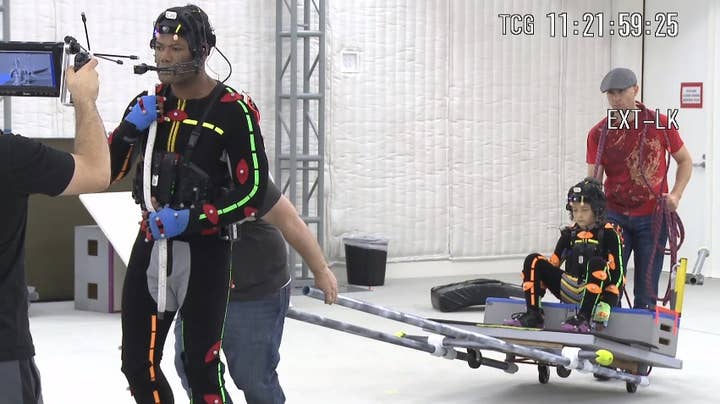
"After the first couple days working in the suit, you become accustomed to it and forget it's there, and you can just get used to being in the moment," Bisutti said. "The basic principles are the same. You're just being truthful in an imaginary set of circumstances. That's what acting is. So that doesn't change; it's just the technical aspect you have to get comfortable with, and then let it go. Let it roll."
"It was a little less of an organic process, whereas in TV or film we would have rehearsed with the director and discovered maybe where the scene might live"
Danielle Bisutti
Regardless of how accustomed an actor might grow to performance capture, there's still a certain amount of spontaneity that must be sacrificed for that level of technical involvement. Bisutti said before filming, nine times out of 10 they would watch a video of a second unit team going through the scene they were about to perform, having choreographed and staged as much of the action as possible. (She got a particular kick out of the second unit Kratos, an actor who delivered his lines with gusto through a very thick Italian accent.)
"It was a little less of an organic process, whereas in TV or film we would have rehearsed with the director and discovered maybe where the scene might live," Bisutti said. "But all directors and all shows are very different that way; this one was very mapped out, dialed in. It had to be because there were so many moving parts and it's such a technical process when you're filming motion capture for a video game."
Bisutti acknowledged that process takes away some of the actor's potential creative contributions to a role, but added she never felt squandered while working on the project, thanks to the way the sessions were handled by the game's director, Cory Barlog.
"Although Cory is so technically brilliant and he knew exactly what was going on, he did allow space for... I wouldn't say 'improv,' but for the magic of the moment before him as opposed to the way they mapped it out, if that makes any sense," Bisutti said. "There were moments that shifted when we [actors] brought what we were bringing to the table, and they were always delighted by that. Because that's why they hired us."
Rigid Flexibility
The idea of a developer knowing what they want but allowing for that to change was a common theme among the actors we spoke to, starting with Bisutti's advice for getting the most out of actors: "Always, always overprepare."
"Come in with the map, and then be willing to allow the magic to happen that may not be the course you set," she said. "If you're able to capture it, if you're able to have that flexibility, let it happen. Because that stuff you can't quite put your finger on is the most captivating magic everybody wants to experience anyway."
Jones' suggestion for what developers need to get the most of their voice actors overlaps with Bisutti's, but from a slightly different angle.
"Being rigidly attached to the way you expect a character to be can be tough," she acknowledged. "Not unworkable, but it can be tough. If I walk in for a character and I have what I think the character is and nothing I do is the way they hear it in their head and therefore it is wrong, wrong, wrong, that's really frustrating and you're not going to get a great performance out of me. If you're open to a little wiggle room--you tell me how you feel it should be, and then I will give my spin on that--let's work from that. Don't tell me I'm doing a bad job because then you're going to get in my head and wreck the session."
"I need to feel clarity from my director and my developer. If I'm throwing a lot of stuff at the wall and they say, 'Well I'll know it when I hear it' or 'We're just going to find it,' that can be very unsettling"
Sarah Elmaleh
Elmaleh agreed, saying, "It's a balance of clarity within yourself for what you need the character to be, and pinning that in the right place. Because it may not be what the character sounds like; it may be how they make you feel, or how they function in the story. Stay open to how that might sound different from what you imagined, is what I would say, so that flexibility and that space for an actor to create is there. Allow yourself to be surprised, but know in your heart and your gut where the important pieces are that you need to hold onto, that you need to check against.
"I need to feel clarity from my director and my developer. If I'm throwing a lot of stuff at the wall and they say, 'Well I'll know it when I hear it' or 'We're just going to find it,' that can be very unsettling. Then I'm just going to make some internal decisions and go with my best guesses. But that's true of any collaboration. You have the things you're willing to fight for, and the things you should--with humility and delight--concede to."
In Farely's experience, that need for clarity is virtually universal, as little can be as frustrating for an actor that getting the sense that the voice director or developers don't really know exactly what they want.
"The one note that really drives actors crazy is when someone says, 'That was perfect. Let's do it again...' If you're bringing somebody in because you heard an audition that sounded like the person you wrote, trust that. Maybe there isn't a lot to say. Maybe it's just as much as going, 'Great, let's move on.'"
Projecting
Ultimately, voice acting in games will likely evolve the way anything else does. Practices that produce successes like God of War and Firewatch will likely be emulated, and practices that don't will be avoided. The former was Sony's fastest-selling first-party PS4 game to date. The latter out-sold Campo Santo's most optimistic projections, is being adapted for a feature film, and saw Jones earn a BAFTA for best performance in a game.
While God of War and Firewatch have been successful projects by any measure, their doesn't seem to be much of a rush in the industry to emulate their practices when it came to dealing with actors.
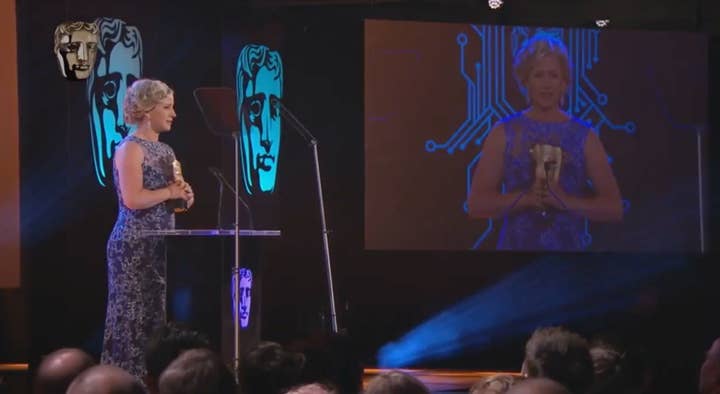
"Firewatch was really rare in the sense that not only did I know I was a main character, but I knew the name of the property, I knew the story, and I was allowed to talk about it," Jones said. "[Campo Santo's] Sean Vanaman and Jake Rodkin were like, 'Yeah, do interviews. Talk about it and get the word out there. We want people to know this is happening and you're a big part of it.' That has never happened before or since."
Simply being able to act opposite another actor during Firewatch's recording session was a rare treat for Jones. Even with dozens of games to her credit spanning from obscure indies to AAA blockbusters, the only other time she could recall ensemble recording on a game came for Arkham Knight, when she recorded her role as Nora Fries alongside Maurice La Marche, who played Mr. Freeze.
It seems clear the way voice acting works in games is not fine-tuned to facilitate the best performances possible. While a class of voice actors with unique skill sets have adapted to the industry's particular constraints, the end product could be improved by actors having more access to one another and more time to prepare their performances. The secrecy surrounding so many projects is also self-defeating; it's harder to select the ideal talent for a role when they know neither the nature of the project nor their character's place in it.
"One of the axioms in directing is that it's 80% casting," Farley said. "If you've got a good actor you feel has a handle on the role from the casting process, chances are that actor's going to show up and deliver that performance when you're doing your recording."
Even if game developers continue to insist on secrecy, Farley is optimistic that they'll at least start letting actors in on the secrets a bit more.
"We're hopefully moving in the direction of not having to worry about actors leaking the titles of video games," he said. "We're working with actors to make sure they understand companies have marketing plans that are screwed up when you tweet about this great session you did for the new Star Wars game. And we're educating our performers that 'non-disclosure' means you don't talk to anybody about it. Once we can build a level of trust and companies can feel comfortable sharing important details about the work going on, they're going to have actors give better performances."
He added, "That's certainly my goal, to bring actors and developers together and have us recognize we're not adversaries, that we're on the same team. We're part of the development process; actors really are part of the dev team on the performance side. But actors need to be educated. We get excited and we want to let people know what we're doing. That's part of getting the next gig. But we also have to understand we wouldn't be talking about being in the new Blade Runner. You would be signed to an exclusive NDA and not allowed to talk about it. Same with video games. These folks aren't going to release who's in their game until it's time to release who's in their game, and they have very good reasons for that. Even if they had bad reasons, it still should be respected. Their marketing plan needs to be respected."
